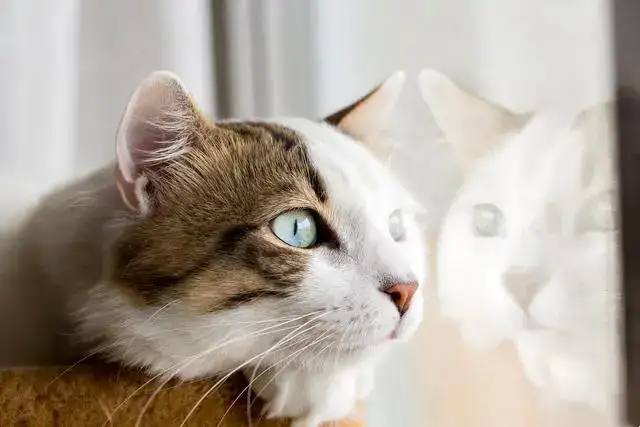Why These Few Things Should Not Be Done Too Often When Raising Cats
Raising a cat can be a fulfilling and enjoyable experience, but it comes with its own set of challenges. Many cat owners are eager to provide the best for their feline companions, but certain actions, if done too frequently, can lead to stress, behavioral issues, and health problems. In this article, we will explore several common practices that should be moderated to ensure your cat’s well-being.

1. Over-Grooming: Understanding Your Cat’s Grooming Needs
Why You Shouldn’t Over-Groom Your Cat
Cats are naturally meticulous groomers. While it’s essential to help them maintain their coat, over-grooming can disrupt their natural behavior and lead to stress. Here’s why moderation is key:
- Stress and Anxiety: Excessive grooming can cause anxiety in cats, leading them to become withdrawn or aggressive.
- Skin Problems: Over-grooming may lead to skin irritations or infections, especially if you’re using products that aren’t suitable for their skin type.
It’s crucial to find a balance in grooming, ensuring your cat feels comfortable and secure.
2. Excessive Feeding: The Dangers of Overfeeding Your Cat
How Overfeeding Can Harm Your Feline Friend
While it’s tempting to spoil your cat with treats and extra portions, overfeeding can have serious health consequences:
- Obesity: Cats are prone to obesity, which can lead to various health issues, including diabetes, arthritis, and heart disease.
- Nutritional Imbalance: Overfeeding can lead to an imbalance in their diet, causing deficiencies in essential nutrients.
It’s essential to follow feeding guidelines and consult your vet to determine the right portion sizes for your cat.
3. Frequent Changes in Routine: The Need for Stability
Why Cats Thrive on Routine and Stability
Cats are creatures of habit, and frequent changes in their environment or routine can cause them stress:
- Behavioral Issues: Cats may react to changes with anxiety, resulting in destructive behaviors, litter box issues, or excessive vocalization.
- Health Risks: Prolonged stress can weaken your cat’s immune system, making them more susceptible to illness.
Aim to keep a consistent daily routine, including feeding times, playtime, and grooming.
4. Over-Socializing: Understanding Your Cat’s Social Needs
Why Too Much Interaction Can Be Counterproductive
While many cats enjoy social interaction, forcing them to engage more than they desire can lead to stress:
- Individual Personalities: Each cat has a unique personality. Some may be more social, while others prefer solitude. Over-socializing can overwhelm a more introverted cat.
- Aggression: An overstimulated cat may react with aggression or withdrawal, impacting their overall well-being.
Pay attention to your cat’s cues and allow them to dictate their social interactions.
5. Frequent Bathing: Understanding Your Cat’s Grooming Habits
Why You Shouldn’t Bathe Your Cat Too Often
Cats are generally good at grooming themselves, and frequent baths can be detrimental:
- Skin Health: Over-bathing can strip the natural oils from your cat’s skin, leading to dryness and irritation.
- Stressful Experience: Many cats find baths stressful, which can lead to anxiety.
Unless your cat gets into something particularly dirty or smelly, a bath is usually unnecessary.
6. Excessive Vet Visits: Finding the Right Balance
When Is Too Much Vet Attention Detrimental?
Regular vet visits are crucial for your cat’s health, but excessive visits can be counterproductive:
- Stress for the Cat: Frequent trips to the vet can cause anxiety, especially if your cat dislikes the carrier or the car ride.
- Financial Burden: Overdoing vet visits can strain your finances without providing proportional health benefits.
Aim for regular check-ups and vaccinations while monitoring your cat’s health at home.
7. Ignoring Behavioral Cues: Listening to Your Cat
Why It’s Essential to Pay Attention to Your Cat’s Needs
Cats communicate their feelings and needs through behavior. Ignoring these cues can lead to problems:
- Stress and Anxiety: Failing to recognize signs of stress or discomfort can result in behavioral issues or health problems.
- Trust Issues: If you consistently overlook your cat’s signals, they may become less trusting and more withdrawn.
Be attentive to your cat’s body language and vocalizations, adjusting your actions based on their comfort level.
8. Overstimulation: Recognizing Your Cat’s Limits
How Too Much Activity Can Lead to Stress
Cats enjoy playtime, but overstimulation can be harmful. Here’s why moderation matters:
- Behavioral Changes: Overactive play sessions can lead to overstimulation, resulting in aggressive behaviors or anxiety.
- Physical Exhaustion: Too much activity can tire your cat out, leading to stress and irritability.
Monitor your cat’s energy levels and adjust playtime accordingly, ensuring it remains enjoyable.
9. Neglecting Quiet Time: The Importance of Rest
Why Your Cat Needs Time Alone
Cats require downtime to recharge. Here’s why you should respect their need for quiet:
- Stress Relief: Cats often retreat to calm spaces to alleviate stress. Not allowing them this time can lead to anxiety.
- Health Benefits: Adequate rest is crucial for your cat’s overall health and immune function.
Provide safe, quiet spaces for your cat to retreat to when they need a break.
10. Conclusion: Striking a Balance in Cat Care
Caring for a cat requires understanding their unique needs and recognizing that certain actions should be limited. By avoiding over-grooming, excessive feeding, frequent routine changes, and more, you can create a comfortable environment that supports your cat’s physical and emotional well-being. Always prioritize your cat’s cues and consult with your veterinarian when in doubt about their health and happiness.

Comments (0)